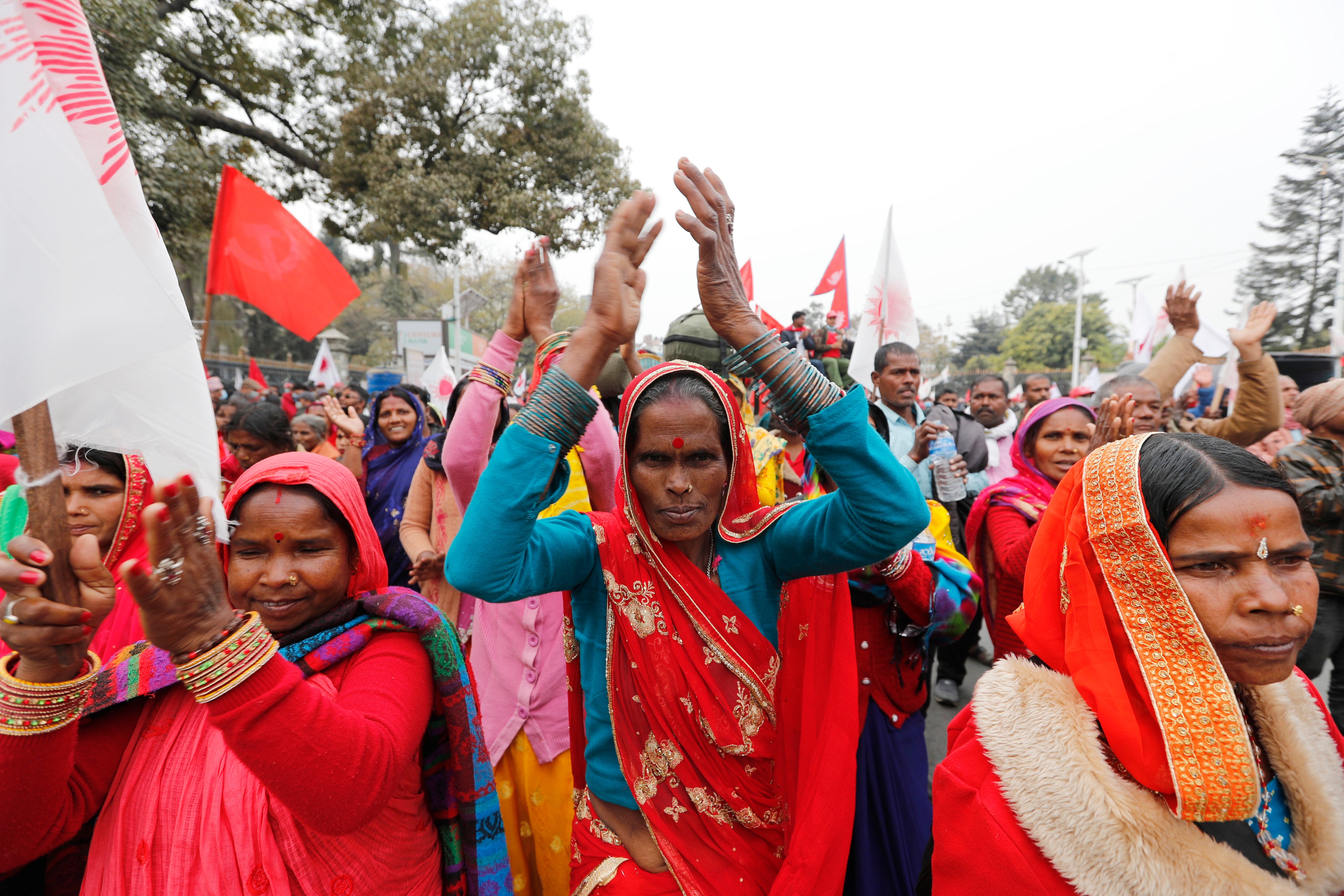Street protests continue against Nepal's prime minister
Tens of thousands of people have poured into Nepal’s capital as protests continue against the prime minister’s decision to dissolve Parliament and announce new elections

Your support helps us to tell the story
From reproductive rights to climate change to Big Tech, The Independent is on the ground when the story is developing. Whether it's investigating the financials of Elon Musk's pro-Trump PAC or producing our latest documentary, 'The A Word', which shines a light on the American women fighting for reproductive rights, we know how important it is to parse out the facts from the messaging.
At such a critical moment in US history, we need reporters on the ground. Your donation allows us to keep sending journalists to speak to both sides of the story.
The Independent is trusted by Americans across the entire political spectrum. And unlike many other quality news outlets, we choose not to lock Americans out of our reporting and analysis with paywalls. We believe quality journalism should be available to everyone, paid for by those who can afford it.
Your support makes all the difference.Tens of thousands of people poured into Nepal's capital on Wednesday as protests continued against the prime minister's decision to dissolve Parliament and announce new elections.
A splinter group of the governing Nepal Communist Party brought people from other parts of the country on buses and trucks to Kathmandu where they gathered for a rally in the heart of the city.
The group has been protesting Prime Minister Khadga Prasad Oli’s decision in December to dissolve Parliament. Last week, it led a nationwide general strike that shut schools, transportation and markets.
Authorities stepped up security in the city on Wednesday, with riot police and barbed wire barricades blocking the main government offices. There were no reports of violence.
Oli became prime minister after his Nepal Communist Party won elections three years ago. His party and the party of former Maoist rebels had earlier merged to form a unified Communist party.
Tensions, however, have grown between Oli and the leader of the former rebels, Pushpa Kamal Dahal, who is also co-chair of the party. The two had previously agreed that they would split the five-year prime minister’s term between them, but Oli has refused to allow Dahal to take over.
Both Oli and Dahal claim the Nepal Communist Party as theirs and the issue is being disputed at the Election Commission. Dahal’s faction even announced that it had ousted Oli from the party at a meeting last month.